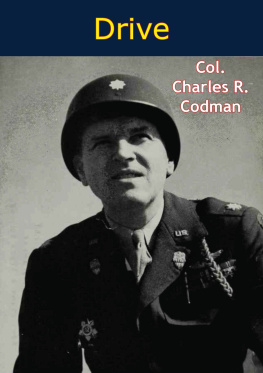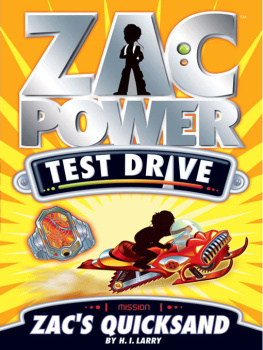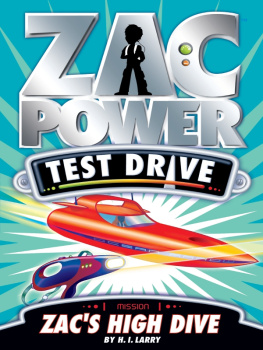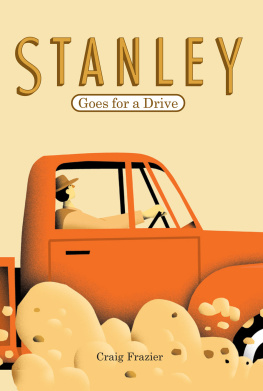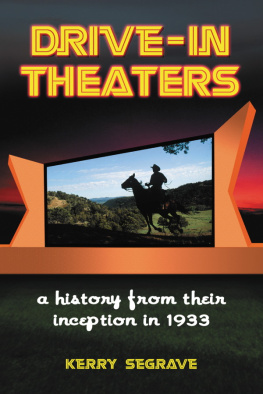Codman - Drive
Here you can read online Codman - Drive full text of the book (entire story) in english for free. Download pdf and epub, get meaning, cover and reviews about this ebook. year: 2016, publisher: Lucknow Books, genre: Detective and thriller. Description of the work, (preface) as well as reviews are available. Best literature library LitArk.com created for fans of good reading and offers a wide selection of genres:
Romance novel
Science fiction
Adventure
Detective
Science
History
Home and family
Prose
Art
Politics
Computer
Non-fiction
Religion
Business
Children
Humor
Choose a favorite category and find really read worthwhile books. Enjoy immersion in the world of imagination, feel the emotions of the characters or learn something new for yourself, make an fascinating discovery.
- Book:Drive
- Author:
- Publisher:Lucknow Books
- Genre:
- Year:2016
- Rating:5 / 5
- Favourites:Add to favourites
- Your mark:
- 100
- 1
- 2
- 3
- 4
- 5
Drive: summary, description and annotation
We offer to read an annotation, description, summary or preface (depends on what the author of the book "Drive" wrote himself). If you haven't found the necessary information about the book — write in the comments, we will try to find it.
Drive — read online for free the complete book (whole text) full work
Below is the text of the book, divided by pages. System saving the place of the last page read, allows you to conveniently read the book "Drive" online for free, without having to search again every time where you left off. Put a bookmark, and you can go to the page where you finished reading at any time.
Font size:
Interval:
Bookmark:


This edition is published by PICKLE PARTNERS PUBLISHINGwww.pp-publishing.com
To join our mailing list for new titles or for issues with our books picklepublishing@gmail.com
Or on Facebook
Text originally published in 1959 under the same title.
Pickle Partners Publishing 2016, all rights reserved. No part of this publication may be reproduced, stored in a retrieval system or transmitted by any means, electrical, mechanical or otherwise without the written permission of the copyright holder.
Publishers Note
Although in most cases we have retained the Authors original spelling and grammar to authentically reproduce the work of the Author and the original intent of such material, some additional notes and clarifications have been added for the modern readers benefit.
We have also made every effort to include all maps and illustrations of the original edition the limitations of formatting do not allow of including larger maps, we will upload as many of these maps as possible.
DRIVE
BY
COLONEL CHARLES R. CODMAN
With Illustrations

To my son
First Lieutenant Charles R. Codman, Jr.
THIS book is compiled from letters written to my wife during thirty-three months of service (1942-1945) in the European theater of operations during World War II.
At the end of the North African campaign, I was appointed A.D.C. to General George S. Patton, Jr., serving from then on as his senior aide-de-camp until after V-E Day and his return to the United States. While General Patton is naturally the central and dominating figure of this journal, the latter is in no sense an attempt at either biography or military analysis. It is simply an account describing such day-to-day personal experiences in wartime Africa and Europe as I felt might interest or amuse my wife.
To the original letters I have added the names of places, individuals, and units which at the time of writing would have been disallowed by the censor. Certain passages of a personal nature have been omitted.
For their friendly assistance and editorial advice I wish to thank the following: Edward Weeks of the Atlantic Monthly ; Lieutenant General Hobart R. Gay; Bernard S. Carter; John P. Marquand; Archibald S. Alexander; William A. Parker; Edward P. Creed; General Marie Jean Tiatte; Frances and Charles P. Curtis.
CHARLES R. CODMAN
Boston, July 1956
The chapter notes are by Lieutenant General Hobart R. Gay, USA (Ret.), formerly Chief of Staff to General Patton.
by
John P. Marquand
BY a happy combination of circumstances, Lieutenant Colonel Charles Codman and I happened to meet overseas in the summer of 1943 at the Hotel Aletti in Algiers. The General officers mess was located in that crumbling caravansary, and experience showed why General officers avoided it when possible. In spite of the salt and atabrine tablets served free of charge, the old salle manger was a dismal place with wrapping paper for napkins and truncated beer bottles for glasses. I can still remember the Colonels expression of restrained enthusiasm when we examined the Hotel Alettis menu. It was not a suitable place for my friend and Harvard classmate who had, between two world wars, become a professional consultant on wines and also an authority on cooking. Colonel Codman was aide-de-camp to General George S. Patton, Jr. I had arrived in North Africa from Washington accompanying Brigadier General James S. Simmons on a rather obscure intelligence mission.
I had learned on my first visit to Allied Force Headquarters that Colonel Codman was with General Patton in Sicily and thus it was a pleasant surprise when he called at the Hotel Aletti. He had just arrived from Sicily in General Pattons C-47 plane to do a series of confidential errands. The moment I saw Charles Codman I remember that two thoughts crossed my mind. The first was that his uniform, which was A, fitted him like a West Pointers, although his face was not conventional Army. His wings, battle ribbons, and Croix de Guerre with Palm indicated his distinguished career in World War I, but he looked too young for a Retread. In spite of a congenital disinclination for exercise, deplored by his more athletic friends, he was obviously standing up to his second war much better than a lot of his more strenuous contemporaries. In fact, it did not appear to have worn him down at all. My second thought was that in spite of the bizarre background of wartime Algiers, Charley Codman was just the same as always, amused, diverted, but basically unworried by the extraneous. The war had not changed him and already he had seen a lot of war since he had climbed down the cargo nets at the North African landing. A reassuring naturalness that he always displayed anywhere is perhaps what all of his friends remember best about him, and it is also a trait which everyone will observe between the lines of his book.
The Colonel said that General Patton had entrusted him with several commissions on which he must start working immediately and he was in great need of a car and driver. I was happy to tell him that my General had gone off to Casablanca for three days leaving me his car and that if I was not in the way I would be glad to go with him on his errands. We saw a number of strange places in Algiers and several interesting natives before we were finished and we also had a considerable opportunity to talk about Marrakech and El Glaoui (the Colonel knew Morocco very well), about early negotiations with the French Army, and about the late Admiral Darlan and General Giraud. The Colonel had seen them all, but his main preoccupation was his present job with General Patton. It was not easy being the Generals aide, nor safe, either, because the General was always up front during combat and was exhilarated when exposed to fire. In the Sicilian campaign the situation was so fluid that on several occasions the General and his party appeared to have got out ahead of everything. One occasion in particular Charley remembered very distinctly. They had stopped before a Sicilian hill town which no one was wholly certain was occupied. Consequently the General suggested that Colonel Codman go over and find out.
It was an unpleasant experience, Charley said, walking up that hill, but it turned out that the people there were glad to see me.
Of course, he added, he had been through a good deal of that sort of thing when he was a pilot in the First World War, but it still was unpleasant.
General Patton was a very exceptional man, he said, and when you began to know him, you began to forget the pearl-handled pistols and the white helmet and the Bond Street riding breechesand to perceive that his eccentricities of dress and speech were based on sound showmanship. Right now, in spite of Sicilys summer heat, every soldier in the Seventh Army was dressed in woolens. Each of them kept his sleeves rolled down by the Generals orders and carried a filled canteen on his web belt. The idea was that the Seventh Army should be ready at any moment for an amphibious operation. You might conclude that the order was farfetched, but it also made Seventh Army personnel different from other boys and in the end they were proud of the difference.
I saw many individuals of the Seventh Army myself a week later in Palermo. It was very warm indeed there and they were still in woolens with their sleeves rolled down. Being in civilian clothes, I was able to ask them frankly how they liked it. They did not like it, but I did not speak to a single soldier who had a thing to say against the General. He had projected himself everywhere and he had created morale, which, as they used to say back at Plattsburg, was a main essential of leadership.
Next pageFont size:
Interval:
Bookmark:
Similar books «Drive»
Look at similar books to Drive. We have selected literature similar in name and meaning in the hope of providing readers with more options to find new, interesting, not yet read works.
Discussion, reviews of the book Drive and just readers' own opinions. Leave your comments, write what you think about the work, its meaning or the main characters. Specify what exactly you liked and what you didn't like, and why you think so.

